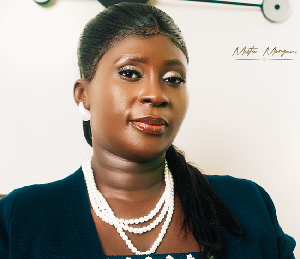Sir Alan Patrick Herbert once said that “the institution of marriage was begun that a man and a woman might learn how to love and, in loving, know joy; that a man and a woman might learn how to share pain and loneliness and, in sharing, know strength; that a man and woman might learn how to give and, in giving know communion” (Institution of Marriage, 98). The institution of marriage, itself, is a sacred institution because of its very nature. It is something special, that is sanctioned by governments, many societies, and, almost all the religions of the world. Followers of Christianity will tell you that it was given and sanctioned by God, as a binding agreement to his (God’s) people to show their commitment to each other.
People decide to marry for several reasons. They might decide to marry for legal, social, and economic stability. Others might decide to do that to form and strengthen a family unit, for procreation, education, and nurturing of children, land legitimizing and for sexual relations. Yet, others even do that as a public declaration of love or to obtain citizenship. Indeed, the latter reason is what is in vogue in most Western countries where immigrants—legal or illegal—marry citizens to cement or legalize their immigration status. Interestingly, the procreative essence of marriage is becoming less popular, as people, who, THINK, are too busy to bring up children are simply going for mere co-habitation.
Unfortunately, the process leading to marriage has become an uphill task for many, especially, the youth to climb. Marriages have simply become too expensive. It is no more enough to present drinks and gifts (known as dowry), a token of support used to compensate the parents for the loss of services of their daughter. In recent times, this gesture is just the first of many processes the man (or, in some cases, the couple) will go through before the marriage is sanction and cemented. The process leading to marriage, itself, is as expensive as the one which comes after—the huge party to celebrate the event.
Our society seems to have become more Western in its values than it was about two decades ago, when marriages were less expensive, more traditional, and more meaningful to the couple, the two families, and the entire society. Marriage, hitherto, was a simple event, sanctioned by the two families, which also meant a lot to the couple who found the joy more in finally making public their intentions to spend their lives together more than the jamboree that characterized the event. Today, we are told that the engagement ceremony, which is the equivalent of the traditional Ghanaian marriage, is no more “proper” marriage—at least that is the undercurrent message that some of our churches have given us. Thus, besides the engagement ceremony, which is very expensive, churches, almost as a matter of necessity, require the couple to crown the traditional ceremony with a wedding ceremony, which is also a burden to many families.
The last time I checked, the church of Pentecost, quite recently, made it mandatory for couples to leave a one-month period between the engagement and the wedding ceremonies. That rationale behind that, I don’t understand. Is it to give the couple some time to re-think the marriage? If that is the case, is the engagement ceremony not marriage, in itself? Is it to give the couple more time to look for some more resources for the wedding? In effect, what this decision means is that the couple needs to go through the expensive engagement ceremony, still manage to pull some resources together, for the one-month’s waiting period, and, then, crown the celebrations with an expensive wedding. To be fair, though, our churches tell us that: “Oh you don’t need to do any expensive wedding,” “you can just come to the church premises on a week day, and we will bless your marriage,” “the couple can just come in with a few family members,” and so on, but we know that is not what really happens in churches—at least in recent times.
One of the issues I have been trying to understand is why the engagement ceremony is almost losing its effect and importance. It appears the engagement ceremony is almost becoming not an event in itself, but only a subordinate process to the main event, which is the wedding ceremony. But, is the engagement ceremony not marriage? Can’t the couple live together after the engagement ceremony? Why has the wedding ceremony become the most important of the events leading to the marriage? Now, if we uphold the wedding as the more important (even if we don’t openly say so), isn’t that an affront to our traditional establishment?
Expensive marriages have almost become a must, even for low-income families, due to the fear of what “people” will think otherwise. ...Society has its own requirements for what it considers a “successful” wedding; churches want to maintain a “certain tradition” and the couple, boxed into the game of perception, will be forced to satisfy potential critics who come to these ceremonies with pen and paper, in hand, to “judge the contest.” Guests expect to see a particular style and make of the wedding dress, a specific model and make of the wedding car, and a specific place for the wedding reception. Today, wedding receptions are no more held on the premises of the church. When was the last time you saw one? It’s either in a hotel—not just any hotel—or an expensive guest house.
In effect, the cost of organizing a marriage ceremony—the engagement or the wedding ceremony—has escalated to the roof through the years. Everything from the wedding dress to the place for the honeymoon seems to be so costly that parents and/or the couple end up taking out large loans to organize this event. The craze to meet societal expectations has driven couples to do some crazy things—people can be crazy, you know. Sometimes, the problem comes from the bride’s family for the groom to meet some expectations, and continue the “respectable” family tradition of the bride, but sometimes, it also comes from the sheer stupidity on the part of the guy to prove his love for the woman. You know we all have our own definition of love. If that were not the case, a man will not go for a loan to organize an expensive wedding just to prove that he loves a woman.
Perhaps, we need to go back to the basics; what is our definition of marriage? What is our definition of a dream marriage? Is it about the joy that comes with finally tying the knots with your dream man or woman? Is our yardstick for a successful marriage ceremony about how expensive the ceremony will be or the joy in the ceremony itself, whether expensive or modest? Does your dream wedding have to really be the most expensive party of your life? Do you want a wedding to captivate your guests? Or, do you want a wedding which, while giving you a beautiful memory, will also make your dream come true, without putting yourself in the poor house on one event?
Some people want us to believe that the marriage ceremony, especially the wedding is a one-time event, so we should not worry how much we spend organizing it. Thus, we often hear people say “this is your only chance” and “it is the most important event in your life,” etc. It is a fact that marriage is a special event, and so should be specially-organized. However, a special event is not necessarily an expensive event. I have NEVER thought the two words are synonymous, and I don’t think they are. However, that is not how many understand it. They will not even mind taking huge loans just to meet this need. Unfortunately, in cases where people have taken loans, they have struggled after spending so much on marriage ceremonies, because they either went a-borrowing or emptied their coffers to satisfy, in most cases, not themselves, but to meet societal expectations.
About two years ago, a good friend of mine, here, in the USA, took loans from two banks for his marriage ceremony (in Ghana). By modern standards, his wedding was lavish and it also took a lavish amount of his time and affection. He returned from Ghana with his wedding ring, pictures of the wedding, and full of smiles at the least display of the pictures. Two years on, he was not fortunate enough to secure a visa for her wife to join him in the states, and he has also not managed to clear his huge debt, which has become a burden to him. He now has a very bad credit, whose score is way below the national average. Another friend also spent so much in the hope that gifts from friends and well-wishers would help him defray the cost. That dream is still waiting to be realized!
The beauty about marriage seems to have been replaced with a material consideration that has become a source of worry to many people. The challenge that confronts many people, especially the youth is that they might not get married as soon as they will want, they will risk meeting these huge expectations conventionally set by society, or will opt for co-habitation, but with no commitment to these relationships. The problem is that the churches or other religious institutions that are supposed to allay the fears of the youth about this process are not making things very easy.
Are we setting a bad precedent? Will expensive marriages not lead to some moral crises of some form?















